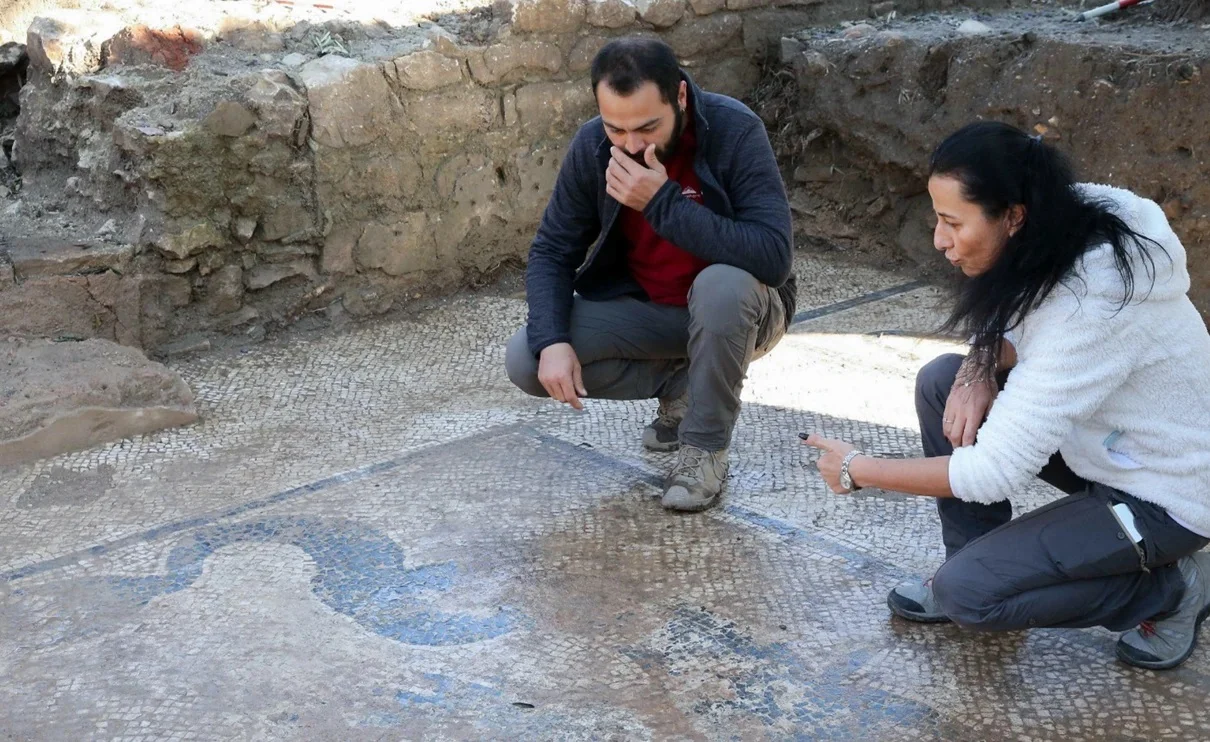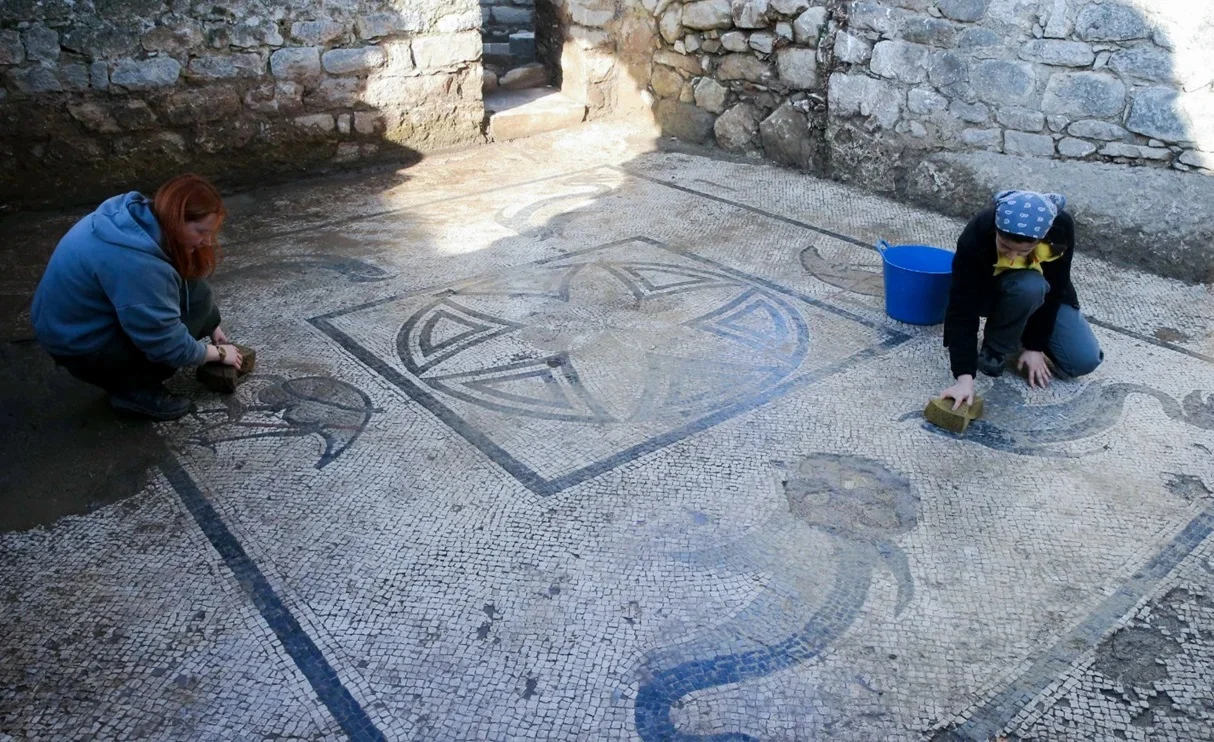Archaeologists from Selcuk University have found several mosaics featuring aquatic animals during excavations at Herakleia.
Herakleia, also known as Latmos during the Archaic and Classical periods, was an ancient city located at the western foothills of Mount Latmus in Turkey’s Muğla Province.
The city was built following a Hippodamian grid plan with its streets aligned to the cardinal directions and centred on the agora. Among the surviving ruins are temples (one dedicated to Athena), a theatre, a nymphaeum, a Roman bath house, rock-cut tombs, and a fortress built during the Byzantine Period.
In a recent study led by Prof. Dr. Zeliha Gider Büyüközer from Selçuk University’s Archaeology Department, archaeologists have uncovered mosaics featuring crocodiles, dolphins, flamingos, and eels.
The excavations, conducted as part of the Ministry of Culture and Tourism’s “Heritage to the Future” project, aim to document a Roman bathhouse complex and promote tourism in the region.

Prof Büyüközer highlighted the presence of crocodile depictions in the frigidarium (cold room) which contains six crocodile figures directly facing each other. This find is especially unique, as the region’s temperate climate is not suitable for crocodiles.
“The mosaic artist must have seen a crocodile firsthand, as the depiction is highly detailed. This suggests that the artisan may have been a traveling master craftsman who had previously worked in regions where crocodiles were present,” said Prof Büyüközer.
In the tepidarium (warm area) is a mosaic floor depicting four dolphins positioned in each corner. The mosaic also contains two flamingos, which are shown carrying eels made of red stones in their mouths.
“Flamingos are also bird species that continue to live in this area today. In fact, the artist painted the animals he saw in this geography,” added Prof Büyüközer.
Header Image Credit : AA
Sources : Selcuk University





